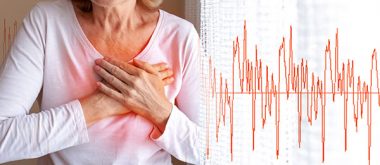A recent study published in the Journal of the American Heart Association has linked regularly taking long naps to poor heart health and a higher risk of cardiovascular disease. Previous studies have linked frequent napping to a greater risk of high blood pressure and stroke.
Although earlier studies have made the association between cardiovascular disease and sleep disorders in general, these more recent studies are unique in their effort to make a connection between specific sleep characteristics such as napping, sleep duration and sleep patterns, to cardiovascular health.
Frequent Napping Related to Higher Stroke Risk
Napping, on its own, is not necessarily a bad thing, and can even be beneficial. Napping for less than an hour has been associated with improved sleep quality, good mental function and better mood.
In one study out of Niigata University in Japan, napping for 30 minutes or less effectively promoted dramatic improvements in cognitive performance throughout the day. According to another study published in the National Library of Medicine, “Even short bouts of dozing (30-60 min) during periods of wakefulness can entrain circadian rhythms and increase alertness and cognitive performance.”
A recent study, however, discovered that people who nap are 12 percent more likely to be diagnosed with high blood pressure, and nearly 25 percent more likely to suffer from a stroke. Although short or infrequent naps have not been shown to be a cause for alarm, numerous studies have linked frequently napping for an hour or more to a higher risk of cardiovascular concerns.
Napping Can Affect Sleep Patterns and Heart Health
 Research from the West of Scotland Coronary Prevention Study found that people who napped for more than two hours had higher coronary risk factors such as obesity, diabetes, high blood pressure, high cholesterol levels and depression. This association between napping and cardiovascular disease may be in part due to the possibility that people who nap for longer periods do so to make up for lost sleep at night.
Research from the West of Scotland Coronary Prevention Study found that people who napped for more than two hours had higher coronary risk factors such as obesity, diabetes, high blood pressure, high cholesterol levels and depression. This association between napping and cardiovascular disease may be in part due to the possibility that people who nap for longer periods do so to make up for lost sleep at night.
Not only has not getting enough sleep at night long been associated with a higher risk of poor cardiovascular health, but conversely, those who do suffer from poor heart health tend to be more tired and need more sleep in general. According the Xiaomin Zhang, MD, a professor at Huazhong University of Science and Technology, frequent or prolonged napping may also increase the risk of heart disease and stroke because it could indicate an “overall inactive lifestyle,” which could contribute to the risk of cardiovascular concerns.
How Better Sleep Can Improve Heart Health
A good night’s sleep is important in maintaining cardiovascular, cognitive and overall health. Getting a good night’s sleep can also help you maintain a healthy weight and feel more energetic throughout the day. Sleep benefits your heart by allowing your body to rest, repair and heal. When you’re asleep, your body releases growth hormones and anti-aging compounds that promote healthy cell development and regeneration. It’s important to get between seven and nine hours of sleep every night if you want to reap all these benefits.
Poor sleep habits and bad sleep quality can have serious health consequences. Not getting enough sleep can increase your risk of obesity, diabetes, memory loss and depression. If you’re not sleeping well at night, you might feel stressed or frustrated during the day. Getting a good night’s sleep will help your body repair itself and keep your mood in check throughout the day.
Napping is often unavoidable, especially if you work odd hours or shift work, but it’s important to ensure you’re not sleeping too much during the day. When you’re awake, be sure to get in a good amount of exercise, which will help keep your body healthy throughout the day.
Based on the evidence, short naps or napping infrequently could be beneficial to the body, but not only could frequently napping for longer than an hour suggest poor cardiovascular health, it could also raise your risk of a cardiovascular event occurring in the future. If you frequently nap for longer than an hour, it could be an indicator that it’s time to take a closer look at your cardiovascular health.





